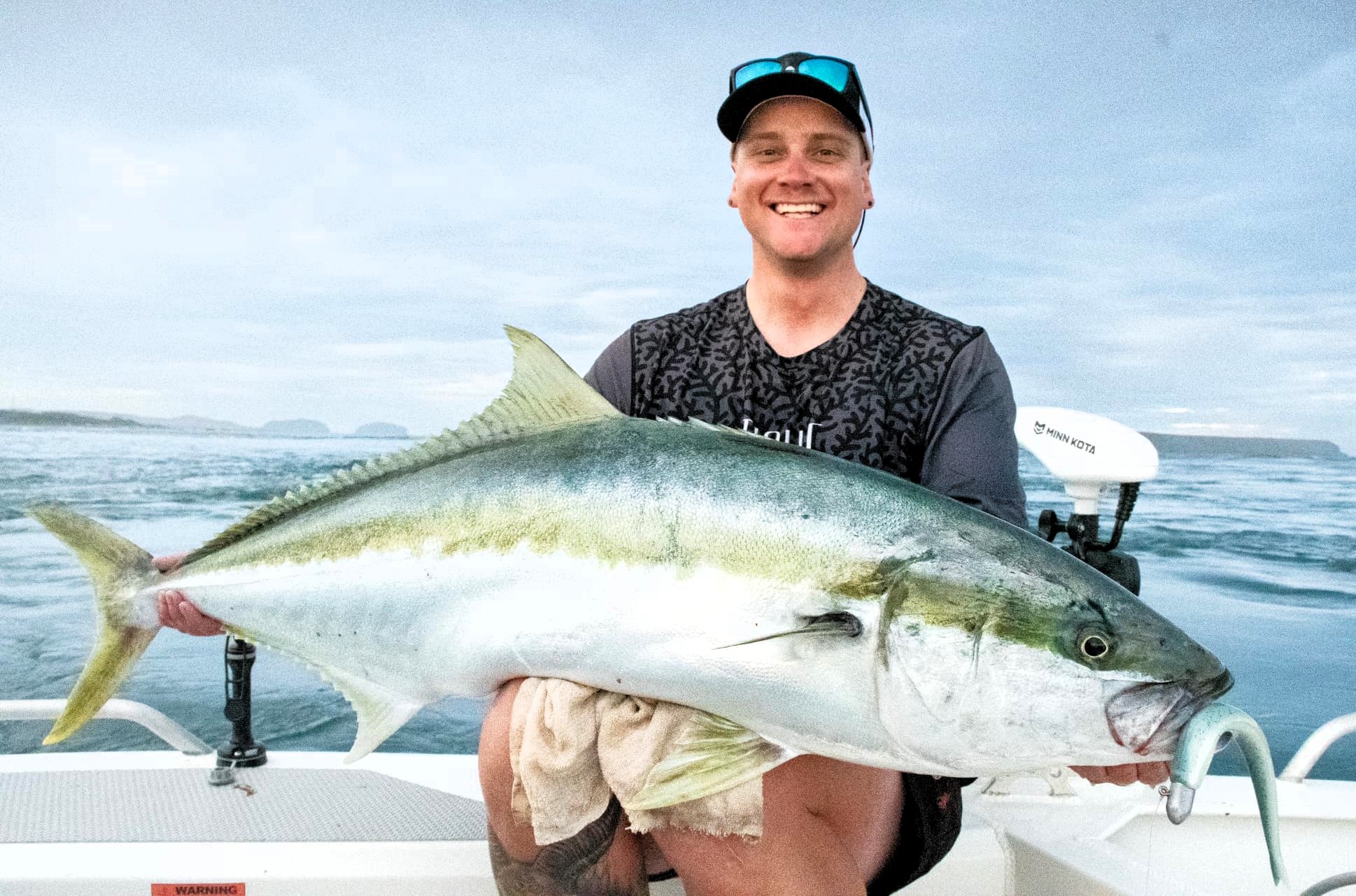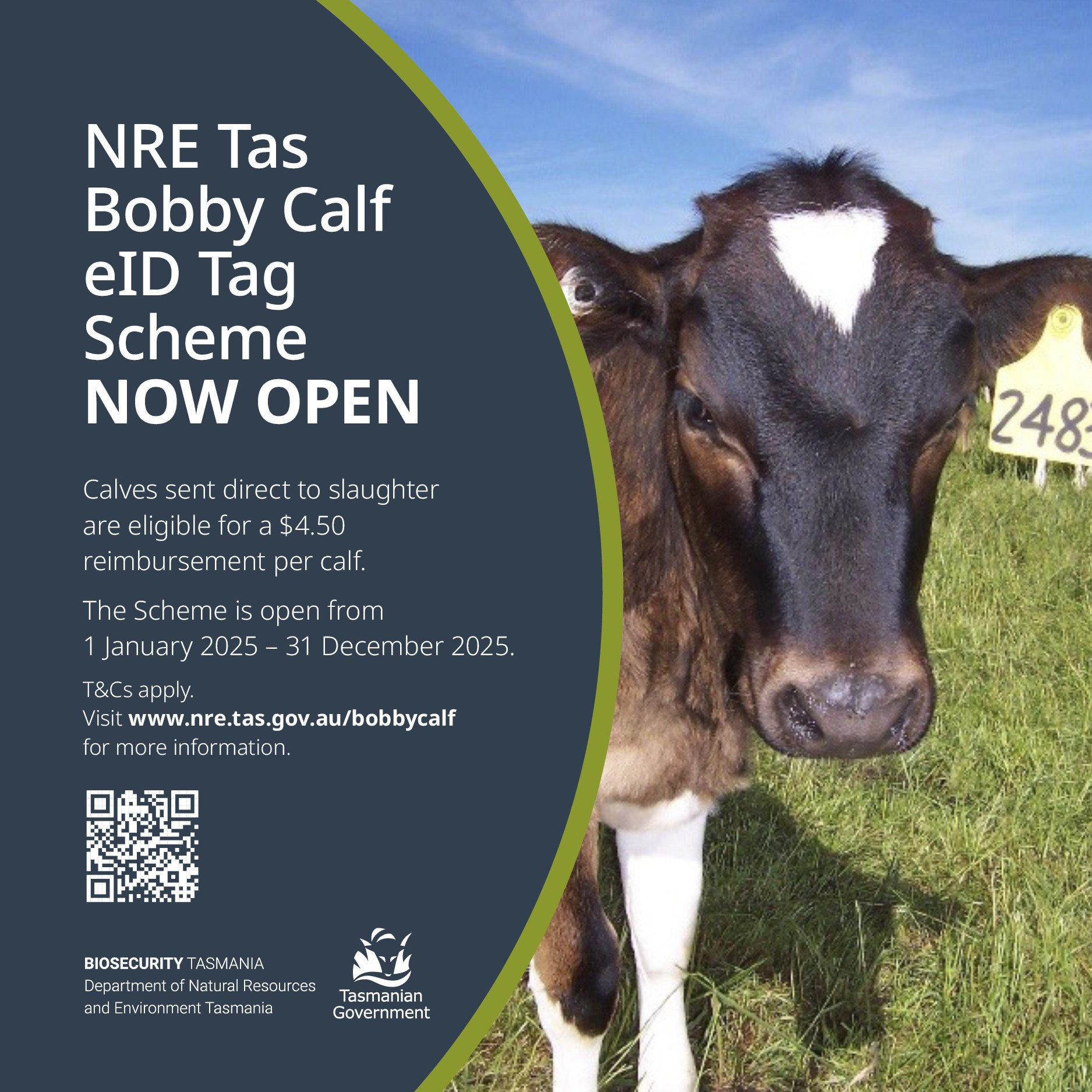Fish keep their cool as temperatures rise
AS WE usher in the New Year, we've been greeted with a summer heatwave, with temperatures consistently remaining in the mid-20s.
This prolonged warmth serves as a timely reminder of the fire risks we face, especially considering the recent wildfires that have devastated Los Angeles.
It's crucial to keep your fire safety plans updated. For those planning camping or fishing trips in the coming months, exercising common sense is paramount. Bushwalkers and adventurers should also approach their activities with caution.
The recent rescue of an individual missing since Boxing Day on the mainland highlights the importance of preparedness and safety.
On the fishing front, the heat has somewhat dampened enthusiasm, but early mornings and late afternoons or evenings have proven to be the most productive times to be on the water. Anglers have reported success at Lake Echo, catching fish by trolling lures in deeper, cooler waters and spinning among the trees during low light periods.
Bronte Lagoon has yielded chunky brown and rainbow trout, while Lake Sorell has offered well-conditioned brown trout, primarily to trollers using shallow-running lures.
Talbots Lagoon in the north and Great Lake continue to impress with good-conditioned rainbow and brown trout.
The lower Derwent Hydro Catchments are currently challenging due to fluctuating water levels. Nonetheless, opportunities remain, and redfin perch, considered pests, are a common bycatch.
These fish should not be released back into the water. Interestingly, despite their pest status, redfin perch are among the tastiest fish. Consider keeping them and frying the fillets for a delightful meal.
Lake Leake has been performing well, and the Lake Leake Community Social Club is hosting an Australia Day trout fishing competition on Saturday, January 25, starting at 6 am and concluding at 5 pm.
Entry fees are $10, with anglers under 14 years of age participating for free. Prizes are available in both Senior and Junior categories, along with a fisherman's pie prize. For more information and to register, contact Jan Milner at 0408 842 282.
Additionally, the "Back To Pedder" trout fishing competition runs from January 24 to 27. The Lake Pedder Anglers Club organizes this event and, along with sponsors, offers great prizes. This year's major prizes include a 3.5 hp Mercury outboard motor worth $1,550 for first place, a Dune 4WD 80-litre Frontier fridge/freezer for second, and a family-size tent worth nearly $1,000 for third.
Yellowtail kingfish catches are improving, with some big fish landed and lost, especially in the northern parts of the state recently. Kingfish have become more active with rising water temperatures, which significantly influence their feeding habits. In cooler waters around 15-16°C, they're present but less active. It's noted that when water temperatures rise to around 18-20°C or more, they tend to become more aggressive feeders. Schooling kingfish can be elusive and challenging to entice, but sometimes, a single interested fish can trigger a feeding frenzy.

Using a depth sounder or fish finder can aid when boating; however, kingfish are known to avoid boats or spook easily. Approaching areas quietly where they congregate and being ready to mobilize quickly is a good strategy. Often, you might only get one chance to cast at them, so readiness is key. Surface lures like poppers, stickbaits, and large soft plastics work well. If fishing with companions, try different lures and have gear rigged with various options to adapt quickly. Fresh live and dead baits like Australian Salmon, Garfish, and Squid are also favored by kingfish.
Good catches of Australian salmon are available, offering great sport and fun. Most bays and beaches around Tasmania hold Australian salmon, and spinning a silver slice or flashy lure is effective. As they're an oily fish, it's best to bleed them out quickly to improve flesh quality and taste. As with all saltwater fish kept for consumption, placing them into an ice slurry of one part saltwater and one part ice immediately after bleeding is recommended. When cooking, they can be filleted and fried, but one of the best ways to enjoy them is to cook the fish, remove all the flesh from the carcass, mix it with ingredients like mashed potato, bacon, onion, spices, and then fry them up as fish cakes.
Some good catches of whiting have come from Frederick Henry and Norfolk Bay, with sizable flathead, mackerel, mullet, barracouta, and silver trevally also about. Tight lines until next week.
Tip of the Week: When fishing from a boat during the day, and especially at night, keep noise to a minimum as it can spook already wary fish. At night, try to keep lights off as much as possible, as they can also spook fish and may annoy your mates by causing temporary blindness.
Send in your fishing reports, pictures, and tips to valleyfishes@gmail.com and keep track of the Derwent Valley Gazette Fishing column at derwentvalleygazette.com.au




Add new comment